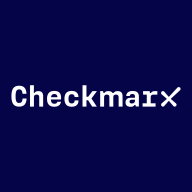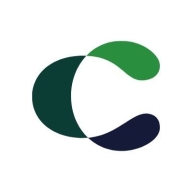

Checkmarx One and Contrast Security Assess are prominent application security tools. Contrast Security Assess appears to have the upper hand in feature richness and real-time security insights, while Checkmarx One is more competitive in pricing and customer support.
Features: Checkmarx One users note its comprehensive scanning coverage, effective CI/CD pipeline integration, and support for a variety of development languages. Contrast Security Assess is recognized for its real-time monitoring, ease of integration with existing workflows, and ability to deliver in-depth security analysis.
Room for Improvement: Checkmarx One users suggest enhancements in scan speed, reducing false positives, and improving user interface navigation. For Contrast Security Assess, there is feedback to improve documentation comprehensiveness, boost new user assistance, and refine dashboard functionalities.
Ease of Deployment and Customer Service: Checkmarx One is commended for a seamless deployment process and responsive customer service, facilitating straightforward integration. Contrast Security Assess offers a simple deployment but relies more heavily on community support, indicating a need for better onboarding experiences.
Pricing and ROI: Checkmarx One provides favorable pricing and supportive service contracts, appealing to budget-conscious organizations with good ROI. Contrast Security Assess is generally more expensive, but users feel its extensive feature set offers long-term value through advanced security insights.
| Product | Market Share (%) |
|---|---|
| Checkmarx One | 10.3% |
| Contrast Security Assess | 1.0% |
| Other | 88.7% |

| Company Size | Count |
|---|---|
| Small Business | 32 |
| Midsize Enterprise | 9 |
| Large Enterprise | 46 |
| Company Size | Count |
|---|---|
| Small Business | 2 |
| Midsize Enterprise | 3 |
| Large Enterprise | 6 |
Checkmarx One is an enterprise cloud-native application security platform focused on providing cross-tool, correlated results to help AppSec and developer teams prioritize where to focus time and resources.
Checkmarx One offers comprehensive application scanning across the SDLC:
Checkmarx One provides everything you need to secure application development from the first line of code through deployment and runtime in the cloud. With an ever-evolving set of AppSec engines, correlation and prioritization features, and AI capabilities, Checkmarx One helps consolidate expanding lists of AppSec tools and make better sense of results. Its capabilities are designed to provide an improved developer experience to build trust with development teams and ensure the success of your AppSec program investment.
Contrast Security is the world’s leading provider of security technology that enables software applications to protect themselves against cyberattacks, heralding the new era of self-protecting software. Contrast's patented deep security instrumentation is the breakthrough technology that enables highly accurate assessment and always-on protection of an entire application portfolio, without disruptive scanning or expensive security experts. Only Contrast has sensors that work actively inside applications to uncover vulnerabilities, prevent data breaches, and secure the entire enterprise from development, to operations, to production.
We monitor all Static Application Security Testing (SAST) reviews to prevent fraudulent reviews and keep review quality high. We do not post reviews by company employees or direct competitors. We validate each review for authenticity via cross-reference with LinkedIn, and personal follow-up with the reviewer when necessary.